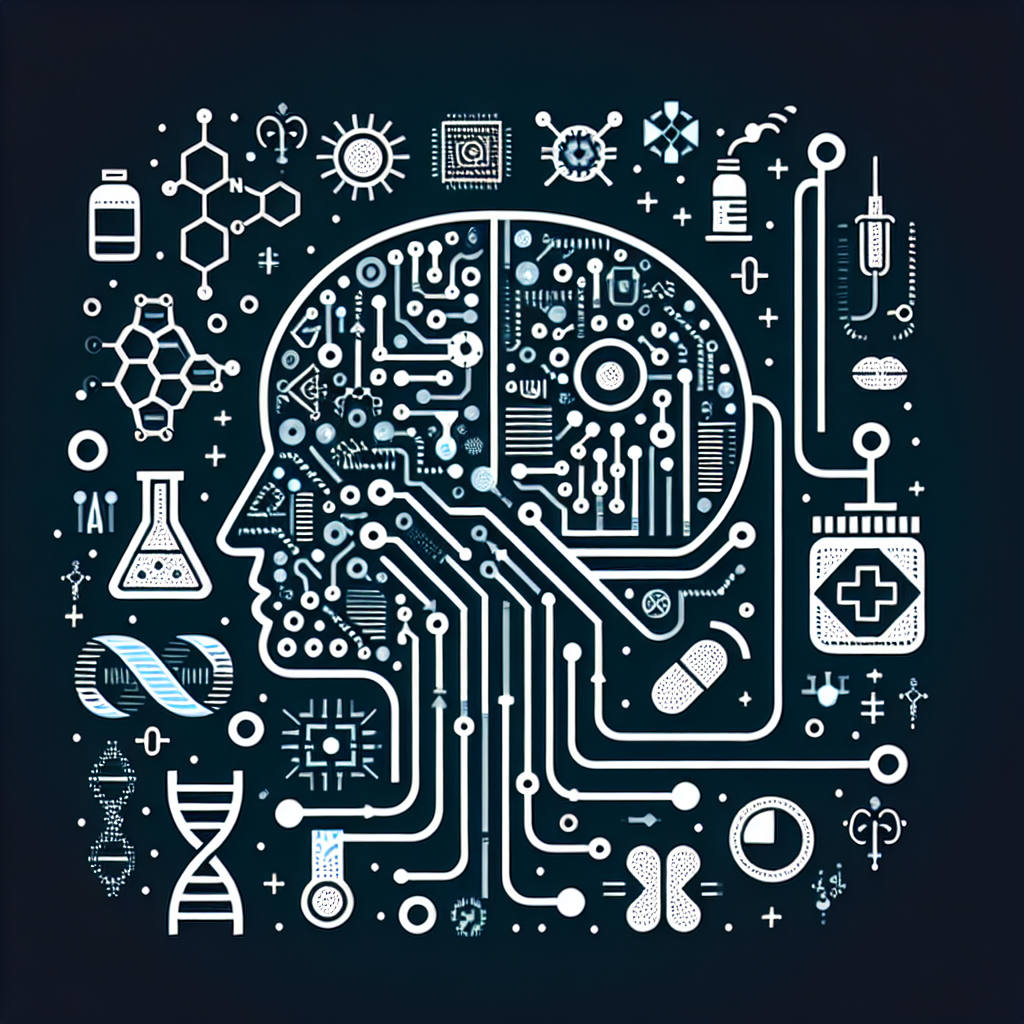AI Deployment in Precision Medicine: Improving Treatments
Precision medicine is a rapidly growing field in healthcare that aims to tailor medical treatment to the individual characteristics of each patient. This approach takes into account factors such as genetics, lifestyle, and environment to develop personalized treatment plans that are more effective and have fewer side effects than traditional one-size-fits-all approaches. Precision medicine has the potential to revolutionize healthcare by improving patient outcomes and reducing healthcare costs.
One of the key technologies driving the advancement of precision medicine is artificial intelligence (AI). AI refers to the simulation of human intelligence in machines that are programmed to think and learn like humans. AI has the ability to analyze large amounts of complex data quickly and accurately, making it well-suited for tasks such as genetic analysis, drug discovery, and treatment optimization. In the field of precision medicine, AI is being used to identify patterns in patient data that can help healthcare providers make more informed decisions about treatment options.
AI Deployment in Precision Medicine
AI is being deployed in precision medicine in a variety of ways to improve treatments for a wide range of medical conditions. Some of the key areas where AI is making an impact include:
1. Genetic analysis: AI algorithms can analyze large sets of genetic data to identify patterns and correlations that can help researchers better understand the genetic basis of diseases. This information can be used to develop targeted therapies that are more effective for specific patient populations.
2. Drug discovery: AI is being used to expedite the drug discovery process by analyzing large databases of chemical compounds and identifying potential drug candidates that could be effective for treating specific diseases. This can help researchers identify new treatments more quickly and cost-effectively.
3. Treatment optimization: AI can analyze patient data, including genetic information, medical history, and lifestyle factors, to develop personalized treatment plans that are tailored to the individual characteristics of each patient. This can help healthcare providers identify the most effective treatment options and reduce the risk of adverse reactions.
4. Predictive analytics: AI algorithms can analyze patient data to predict the likelihood of developing certain medical conditions or experiencing specific health outcomes. This information can help healthcare providers intervene early to prevent disease progression or optimize treatment plans to improve patient outcomes.
Benefits of AI Deployment in Precision Medicine
The deployment of AI in precision medicine offers several key benefits that can improve patient outcomes and reduce healthcare costs. Some of the key benefits include:
1. Personalized treatment plans: AI algorithms can analyze patient data to develop personalized treatment plans that are tailored to the individual characteristics of each patient. This can help healthcare providers identify the most effective treatment options and reduce the risk of adverse reactions.
2. Faster drug discovery: AI can analyze large databases of chemical compounds to identify potential drug candidates more quickly and cost-effectively. This can help researchers bring new treatments to market faster and improve patient access to innovative therapies.
3. Improved patient outcomes: By analyzing large amounts of patient data, AI algorithms can identify patterns and correlations that can help healthcare providers make more informed decisions about treatment options. This can lead to improved patient outcomes and reduced healthcare costs.
4. Reduced costs: AI can help healthcare providers identify the most cost-effective treatment options for individual patients, reducing the overall cost of care. This can help healthcare systems improve efficiency and allocate resources more effectively.
FAQs
Q: How is AI being used in precision medicine?
A: AI is being used in precision medicine to analyze large sets of genetic data, expedite the drug discovery process, develop personalized treatment plans, and predict health outcomes.
Q: What are the benefits of deploying AI in precision medicine?
A: Some of the key benefits of deploying AI in precision medicine include personalized treatment plans, faster drug discovery, improved patient outcomes, and reduced healthcare costs.
Q: Can AI help healthcare providers make more informed decisions about treatment options?
A: Yes, AI algorithms can analyze large amounts of patient data to identify patterns and correlations that can help healthcare providers make more informed decisions about treatment options.
Q: How can AI help reduce healthcare costs?
A: AI can help healthcare providers identify the most cost-effective treatment options for individual patients, reducing the overall cost of care and improving efficiency in healthcare systems.
In conclusion, the deployment of AI in precision medicine is revolutionizing healthcare by improving treatments and reducing healthcare costs. AI algorithms can analyze large amounts of patient data to develop personalized treatment plans, expedite the drug discovery process, and predict health outcomes. By leveraging the power of AI, healthcare providers can make more informed decisions about treatment options and improve patient outcomes. As AI continues to advance, the future of precision medicine looks promising, with the potential to transform healthcare and improve patient outcomes on a global scale.

